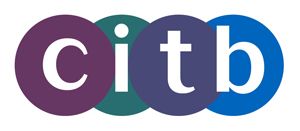 The Construction Industry Training Board (CITB) has announced that it will begin a consultation with industry on a new Levy offer that would reportedly see an across the board reduction in the Levy for all firms to fund a new more relevant offer for industry and a reformed grants scheme.
The Construction Industry Training Board (CITB) has announced that it will begin a consultation with industry on a new Levy offer that would reportedly see an across the board reduction in the Levy for all firms to fund a new more relevant offer for industry and a reformed grants scheme.
The Board says the proposal would see the PAYE Levy on the direct workforce cut from 0.5% to 0.35% and there would be no change in the net (CIS) Levy charged at 1.25% on the subcontract workforce.
Sarah Beale, CEO of the Construction Industry Training Board (CITB), said: “We have been listening to our industry and are confident that this Levy offer is the best option. It will provide the funding required to deliver the support that industry needs, is simple to administer, and is straightforward for levy payers.”
However, not all within the industry agree with the aims of the Board’s proposal. Ian Anfield, managing director for construction audit and contract provider Hudson Contract, commented: “Sarah Beale talks of ‘a completely new CITB,’ yet she proposes the same old methods that have been shown to fail.
“While we welcome the CITB’s efforts to transform, these efforts don’t go nearly far enough because they don’t tackle the root cause. Employers will still pay a levy, they will still pay for training, and they will still find any grant funding falling far short – if they receive any at all.
“The CITB needs to come clean about the significant financial incentives to support its plans that it is offering the largest firms who dominate the industry. It plans to double up on all grant payments to large firms in a £41m giveaway, which means many will get far more out than they pay in. In contrast, SMEs will continue to struggle along with a 52% return on Levy. When employers get their calculators out and check for themselves what the 0.35% PAYE levy means for them, the large firms are going to have much bigger smiles than the SMEs. An average SME will save around £150, whilst the largest employers could save more than £1m.”
Some of the advantages of the levy proposal include:
- All employers are treated equally, and equally benefit from a reduced CITB Levy
- It is simple to implement and legislate, requiring only one change in the Levy rate across the board
- It is based on an approach that employers already know and understand
- A simple option helps to focus conversations with industry on how CITB can support it better and deliver value for money for the Levy.
Ms Beale continued: “Next month, we kick off the next stage of engaging with our industry. We will discuss with employers our proposals for how we support them better and consult on how we fund this through the Levy. We want to ensure that our offer is relevant, makes a real difference and delivers value for money.
“We want as many as employers as possible to share their views and we will shortly be sharing details on how to get involved in the consultation.”
The new levy offer has been developed with input from the industry and in agreement with the industry’s Levy Working Party. Subject to agreement from industry, the new Levy would come into effect from April 2018.
Mr Anfield concluded: “Employers carry out training because they need and want to. They are well capable of choosing whom to buy training from. The CITB has said that it may accredit some federations and employers to carry out their own in-house training. This needs to be straightforward, low cost, transparent, and open to all with minimal bureaucracy, otherwise it will drive smaller providers out of business and prove an additional barrier to training. Trusted suppliers who have a proven track record may be excluded. Yet again, it looks like a policy designed to satisfy the big organisations on who levy consent depends.
“Sarah Beale says she understands people feel ‘that we are not returning enough money to SMEs, that we are leaning too much towards the larger companies and that we are probably more bureaucratic than we would have liked to have been.’ Her proposals may address the last of these problems, but they do nothing to tackle the other two.”



